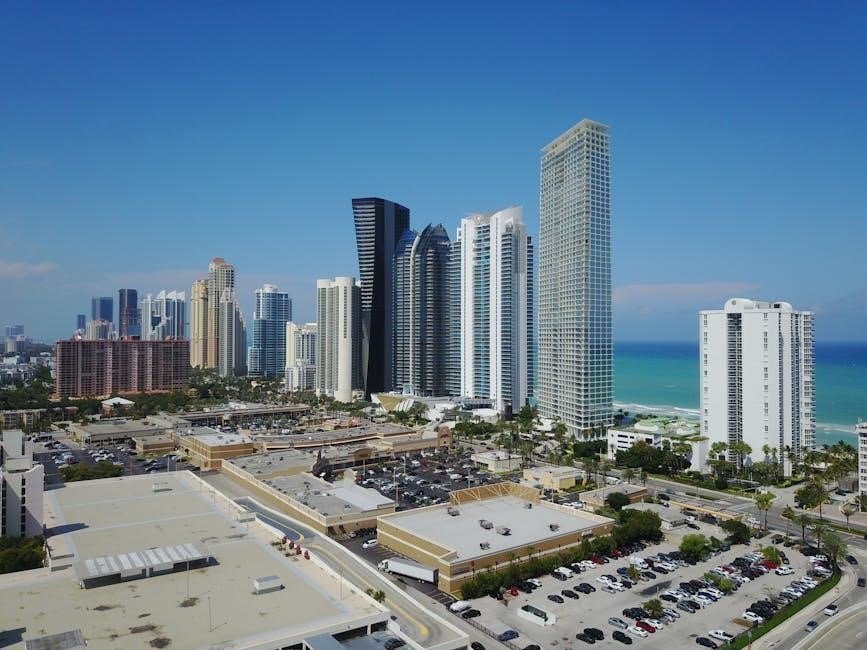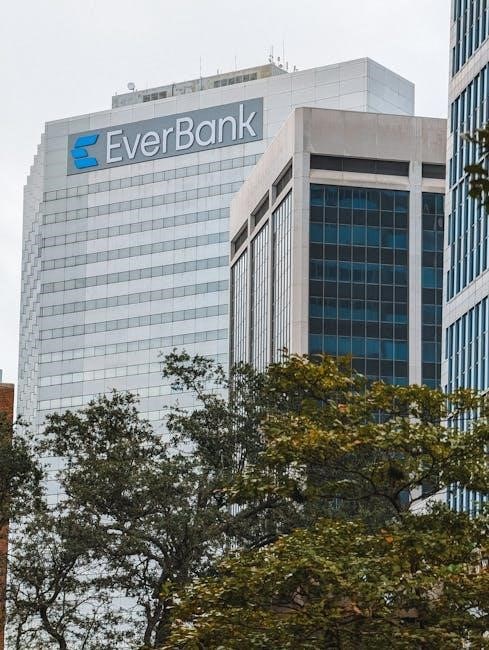An Enhanced Life Estate Deed‚ or Lady Bird Deed‚ is a Florida estate planning tool allowing property transfer upon death while retaining lifetime control and Medicaid eligibility benefits․
What is an Enhanced Life Estate Deed?
An Enhanced Life Estate Deed‚ commonly referred to as a Lady Bird Deed‚ is a legal document used in Florida to transfer property upon the grantor’s death while allowing the grantor to retain control during their lifetime․ It combines a life estate for the grantor with a future interest for the beneficiary․ This deed provides flexibility‚ as the grantor can sell‚ mortgage‚ or gift the property during their life without needing the beneficiary’s consent․ It avoids probate and can help qualify for Medicaid by removing the property from the estate after a certain period․ Unlike traditional life estate deeds‚ the Enhanced Life Estate Deed includes a “power of appointment‚” giving the grantor more control․ It is a popular estate planning tool for maintaining homestead protections and ensuring smooth property transitions․

Overview of the Lady Bird Deed in Florida
A Lady Bird Deed‚ also known as an Enhanced Life Estate Deed‚ is a legal instrument in Florida that allows property owners to transfer ownership upon death while retaining control during their lifetime․ It combines a life estate for the grantor with a remainder interest for the beneficiary‚ offering flexibility and estate planning benefits․ The deed avoids probate‚ protects the property from creditors‚ and helps qualify for Medicaid by removing the asset from the estate after a five-year lookback period․ It also preserves the grantor’s homestead exemption and allows for tax benefits․ Unlike traditional life estate deeds‚ the Lady Bird Deed includes a “power of appointment‚” enabling the grantor to sell‚ mortgage‚ or gift the property without beneficiary consent․ This deed is popular in Florida for its ability to balance estate planning goals with continued property control․
Key Features of an Enhanced Life Estate Deed

An Enhanced Life Estate Deed‚ or Lady Bird Deed‚ offers a life estate for the grantor‚ a remainder interest for beneficiaries‚ and a power of appointment for flexibility in property management․
Life Estate vs․ Enhanced Life Estate

A traditional life estate grants the holder the right to use and occupy property during their lifetime‚ but it lacks flexibility․ In contrast‚ an enhanced life estate‚ such as a Lady Bird Deed‚ provides the grantor with greater control․ It allows the grantor to retain the ability to sell‚ mortgage‚ or gift the property during their lifetime without needing beneficiary consent․ Unlike a standard life estate‚ an enhanced life estate includes a “power of appointment‚” enabling the grantor to change beneficiaries or revoke the deed if needed․ This flexibility makes it a powerful estate planning tool‚ as it avoids probate and can help qualify for Medicaid while preserving the homestead․ The key distinction lies in the enhanced version’s adaptability‚ offering more options for the grantor while maintaining the benefits of a life estate․

Power of Appointment in an Enhanced Life Estate
The power of appointment is a crucial feature of an Enhanced Life Estate Deed‚ empowering the grantor with significant flexibility․ This provision allows the grantor to alter or revoke the deed during their lifetime‚ enabling changes to beneficiaries or property transfers without requiring consent from the named beneficiaries․ Unlike a traditional life estate‚ where the grantor’s options are limited once the deed is executed‚ the enhanced version ensures the grantor retains control․ This flexibility is particularly advantageous for estate planning‚ as it allows the grantor to adapt to changing circumstances‚ such as updates in family dynamics or financial situations․ The power of appointment ensures the grantor can modify the deed to align with their evolving goals‚ providing peace of mind and maintaining their authority over the property throughout their life․
Advantages of Using an Enhanced Life Estate Deed
An Enhanced Life Estate Deed offers numerous benefits‚ making it a valuable estate planning tool in Florida․ One key advantage is the ability to avoid probate‚ ensuring a seamless property transfer upon the grantor’s death․ This bypasses costly and time-consuming legal processes‚ providing beneficiaries with quicker access to the property․ Additionally‚ it allows the grantor to retain full control and use of the property during their lifetime‚ maintaining autonomy and flexibility․ The deed also supports Medicaid eligibility‚ as it prevents the property from being counted as an asset when applying for benefits․ Furthermore‚ it provides tax efficiency‚ as the property can receive a step-up in basis upon the grantor’s death‚ reducing potential tax liabilities for beneficiaries․ Overall‚ an Enhanced Life Estate Deed strikes a balance between retaining control and ensuring a smooth transition of assets‚ making it an attractive option for many individuals seeking to protect their legacy․

How an Enhanced Life Estate Deed Works in Florida
An Enhanced Life Estate Deed allows the grantor to retain control of the property during their lifetime‚ automatically transferring it to beneficiaries upon death without probate․
Role of the Grantor in an Enhanced Life Estate
The grantor in an Enhanced Life Estate Deed retains full control over the property during their lifetime․ They have the authority to sell‚ lease‚ or mortgage the property without needing the beneficiary’s approval․ The grantor also maintains the right to revoke or amend the deed‚ ensuring flexibility in their estate planning․ This unique feature allows the grantor to transfer the property upon their death while avoiding probate․ Importantly‚ the grantor can qualify for Medicaid benefits‚ as the property is not considered an asset during eligibility determination․ The grantor’s role is central to the functionality of the deed‚ as they retain all rights and powers associated with ownership until their passing․ This arrangement provides peace of mind‚ knowing the property will pass to the designated beneficiary seamlessly․ The grantor’s lifetime control and power of appointment make this deed an attractive option for estate planning in Florida․
Role of the Beneficiary in an Enhanced Life Estate
The beneficiary in an Enhanced Life Estate Deed holds a vested interest in the property‚ set to receive it upon the grantor’s death․ They do not have control during the grantor’s lifetime but are assured of ownership afterward․ The beneficiary’s role is passive‚ as they cannot make decisions about the property while the grantor is alive․ However‚ they benefit from the deed’s probate-avoidance feature‚ inheriting the property seamlessly․ The beneficiary must wait until the grantor’s passing to gain full rights‚ ensuring the grantor’s wishes are honored․ This arrangement provides clarity and security for the beneficiary‚ knowing their future ownership is guaranteed․ The beneficiary’s role is crucial in fulfilling the grantor’s estate planning goals‚ offering a smooth transition of property without legal complications․ Their involvement is limited during the grantor’s lifetime but becomes significant upon the grantor’s death‚ ensuring the property transfers as intended․
Property Transfer Upon Death of the Grantor
Upon the grantor’s death‚ the property automatically transfers to the named beneficiary in an Enhanced Life Estate Deed․ This transfer occurs without the need for probate‚ ensuring a seamless process․ The beneficiary inherits the property as specified in the deed‚ maintaining the grantor’s wishes․ The deed’s structure guarantees that the property skips probate‚ avoiding lengthy legal proceedings․ This ensures the grantor’s estate is managed efficiently‚ with the beneficiary receiving the property directly․ The transfer is swift and adheres to the grantor’s intentions‚ providing clarity and certainty for all parties involved․ This feature is particularly beneficial for estate planning‚ as it avoids legal complexities and ensures the property passes smoothly to the beneficiary․ The grantor’s death triggers the transfer‚ fulfilling the deed’s purpose of secure and efficient property succession․

Creating an Enhanced Life Estate Deed in Florida
Creating an Enhanced Life Estate Deed involves preparing the document with legal assistance‚ ensuring it aligns with the grantor’s wishes‚ and recording it for legal validity․
Preparing the Deed Document
Preparing an Enhanced Life Estate Deed involves drafting a document that outlines the transfer of property with retained life estate rights․ The deed must include the legal description of the property‚ names of the grantor and beneficiary‚ and a clear statement of the life estate and power of appointment․ Specific language is required to ensure the deed complies with Florida statutes and effectively transfers ownership upon the grantor’s death․ A legal professional should review the document to ensure accuracy and compliance with local laws․ The deed must be signed by the grantor and notarized‚ with witnesses if required․ Proper preparation is critical to avoid legal issues and ensure the grantor’s intentions are carried out․ Using a template or form from a trusted source‚ such as Deeds․com‚ can simplify the process but still requires legal oversight․

Legal Review and Execution
Legal review and proper execution are critical steps in creating a valid Enhanced Life Estate Deed․ An attorney specializing in real property or estate planning should review the deed to ensure it aligns with the grantor’s intentions and complies with Florida laws․ The attorney will verify that the deed includes all necessary elements‚ such as the grantor’s retained life estate‚ the beneficiary’s rights‚ and the power of appointment․ Once the document is finalized‚ the grantor must sign it in the presence of a notary public‚ who will notarize the signature to authenticate the deed․ Witnesses may also be required‚ depending on local regulations․ Proper execution ensures the deed is legally binding and can withstand any challenges․ After execution‚ the deed is ready for recording‚ completing the process of establishing the enhanced life estate․ Legal oversight guarantees the deed’s validity and protects the interests of all parties involved․
Recording the Deed
Recording the Enhanced Life Estate Deed is a crucial step to ensure its validity and provide public notice of the property transfer․ After the deed is legally executed‚ it must be filed with the county recorder’s office where the property is located․ This process involves submitting the original signed and notarized document along with any required fees․ Once recorded‚ the deed becomes part of the public record‚ ensuring that the grantor’s intentions are officially recognized․ Recording also protects the interests of both the grantor and the beneficiary by providing a clear chain of title․ In Florida‚ the specific requirements for recording may vary by county‚ so it is essential to follow local procedures to avoid delays․ Proper recording guarantees that the enhanced life estate is legally recognized and enforceable‚ securing the property’s future transfer as intended․ This step finalizes the estate planning process and offers peace of mind for all parties involved․
An Enhanced Life Estate Deed in Florida is a powerful estate planning tool‚ offering flexibility‚ Medicaid eligibility‚ and probate avoidance․ Consulting a legal expert ensures proper execution and peace of mind․
Importance of Consulting a Legal Professional
Consulting a legal professional is crucial when dealing with an Enhanced Life Estate Deed in Florida; An attorney specializing in real property or estate planning can ensure the deed aligns with your wishes and complies with Florida laws․ They will review existing documents‚ draft the new deed‚ and guide you through the process to avoid legal pitfalls․ Proper legal advice is essential for maintaining Medicaid eligibility and protecting your homestead․ Without professional guidance‚ you risk errors that could lead to probate or eligibility issues․ An attorney ensures your rights are protected and your estate plans are executed as intended‚ providing peace of mind and legal security for you and your beneficiaries․

Final Thoughts on Enhanced Life Estate Deeds
An Enhanced Life Estate Deed‚ also known as a Lady Bird Deed‚ is a valuable estate planning tool in Florida․ It allows individuals to transfer property upon death while retaining control during their lifetime‚ which can be beneficial for Medicaid eligibility and avoiding probate․ This deed provides flexibility‚ as the grantor can revoke or modify the beneficiary designation at any time․ It is particularly advantageous for homeowners seeking to protect their homestead while ensuring smooth property transition to beneficiaries․ However‚ the complexity of Florida real estate laws makes professional legal advice essential to ensure the deed is executed correctly and meets all legal requirements․ By leveraging this tool‚ individuals can secure their legacy and peace of mind‚ knowing their wishes are upheld and their loved ones are protected․
